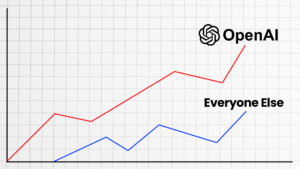In today’s era of rapid technological advancement, an intriguing and critical phenomenon has emerged in the world of artificial intelligence (AI) – the “Arms Race in AI.” This article delves into the significance of this arms race, exploring its implications, the growing concerns it raises, and the measures required to ensure transparency and accountability in this swiftly evolving landscape.
Understanding the Arms Race in AI
The arms race in AI is a dynamic and ever-evolving competition between developers, security experts, and malicious actors. On one front, ethical AI developers tirelessly strive to create AI systems that are not only more accurate and efficient but also more accountable and transparent. On the other side, malicious actors are equally relentless, seeking to exploit AI vulnerabilities for malevolent purposes, such as conducting undetectable cyberattacks, spreading disinformation, or evading surveillance.
This arms race is fueled by the dual-use nature of AI technologies. Tools initially designed for legitimate purposes can be easily repurposed for harmful ends. For instance, facial recognition systems created to enhance security can be misused for invasive surveillance and social profiling. Consequently, researchers and policymakers find themselves in a race against time to develop AI systems capable of keeping pace with evolving threats.

The Concerns Surrounding the Arms Race in AI
The rapid evolution of AI and the ensuing arms race have given rise to several compelling concerns:
- Adversarial Attacks: Malicious actors employ adversarial attacks, which involve manipulating input data to deceive AI systems. These attacks can undermine the reliability of AI detection, leading to false positives or negatives.
- Deepfake Technology: The proliferation of deepfake technology, powered by AI, poses a significant challenge in the arms race. Deepfakes create realistic but entirely fabricated videos or audio recordings, often for malicious purposes like spreading misinformation or impersonating individuals. Detecting deepfakes accurately remains a formidable task.
- Privacy Concerns: AI systems that infringe upon personal privacy or engage in surveillance without consent can go undetected, leading to breaches of individual rights.
- Algorithmic Bias: AI detection systems can inadvertently exhibit bias, resulting in discriminatory outcomes. Detecting and mitigating bias is essential to ensure fair and equitable AI.
- Continual Evolution: Malicious actors continually adapt their tactics, requiring detection software to evolve in response. Failure to do so can lead to vulnerabilities.
Preventing the Arms Race in AI from Escalating
To address these concerns and prevent the arms race in AI from escalating, a multifaceted approach is necessary:
- Regular Updates and Improvements: Developers must continuously update and enhance AI detection systems to stay ahead of evolving threats. Investment in research and development is crucial to strengthening these systems.
- Transparency and Accountability: Establishing ethical guidelines and standards for AI development and deployment is paramount. Transparency in AI algorithms and decision-making processes is essential for building trust and accountability.
- Adversarial Testing: Routine testing using adversarial attacks is vital to identify vulnerabilities in AI detection systems and bolster their resistance to manipulation.
- Collaboration and Regulation: Industry stakeholders, governments, and international organizations should collaborate to establish regulations and standards for AI detection. This will ensure that these systems are developed and used responsibly.
- Ethical Considerations: Throughout the AI lifecycle, from data collection to model training and deployment, developers and organizations must prioritize ethical considerations.
Conclusion
The arms race in AI is a testament to both the potential and peril of artificial intelligence. While these systems offer incredible benefits, they also present substantial risks if not managed with utmost care. Preventing the escalation of the arms race requires an all-encompassing strategy that encompasses technological innovation, ethical considerations, collaboration, and regulation. As we navigate the dynamic landscape of AI, ensuring transparency and accountability in AI development and deployment is paramount to harness its potential for good while mitigating its potential for harm.
For expert guidance in implementing AI solutions for your business, turn to Epimax. We’re committed to ethical AI development and can help you navigate this transformative technology. Stay updated with the latest insights by following us on social media. Let’s shape a future where AI enhances productivity, security, and innovation together.














